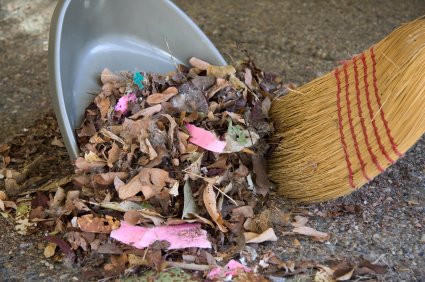Return to Morning Pages - An Experiment in Nurturing Creativity and Creating a Habit
 For many years now I've been a proponent of morning pages - three pages of pen and paper stream of consciousness writing done as soon as you step out of bed. In fact, as part of Julia Cameron's recipe for re-discovering your creative self (The Artist's Way) which I undertook about a decade ago, I'd go so far as to say that morning pages have been instrumental in my development not only as a writer but as an individual. But for some time now morning pages have been at the bottom of my priority list and in fact have rarely been done at all. Along with regular exercise, playing the piano, eating healthily and a myriad of other things I know I should be doing, morning pages have been put in the Scarlett O'Hara "I'll think about it tomorrow" category.Pondering my plans for the year - writing and other - over the holiday break got me thinking about them again. In fact over the last week I've actually managed a few mornings where I did scribble down my messy thoughts and I have to say it's a great way to start the day. So last night I revisited Julia Cameron's famous tome to remind myself of what these pages actually are and why we should be doing them.
For many years now I've been a proponent of morning pages - three pages of pen and paper stream of consciousness writing done as soon as you step out of bed. In fact, as part of Julia Cameron's recipe for re-discovering your creative self (The Artist's Way) which I undertook about a decade ago, I'd go so far as to say that morning pages have been instrumental in my development not only as a writer but as an individual. But for some time now morning pages have been at the bottom of my priority list and in fact have rarely been done at all. Along with regular exercise, playing the piano, eating healthily and a myriad of other things I know I should be doing, morning pages have been put in the Scarlett O'Hara "I'll think about it tomorrow" category.Pondering my plans for the year - writing and other - over the holiday break got me thinking about them again. In fact over the last week I've actually managed a few mornings where I did scribble down my messy thoughts and I have to say it's a great way to start the day. So last night I revisited Julia Cameron's famous tome to remind myself of what these pages actually are and why we should be doing them.
- One of the main functions of the pages is to drain your brain, a kind of mental de-cluttering that allows you to start the day with new space for creative thought to develop. Cameron says of her own experience: They are the broom that clears my consciousness and readies it for the day's inflow of fresh thought.
- As all writers know one of our biggest enemies is the internal critic, the voice in our head that tells us "this isn't good enough, don't bother wasting your time". Morning pages are allowed to be rubbish. You don't have to worry about the quality just the quantity. You can write anything you want as badly as you like.
- Since most of our time is spent using the logical side of our brains, which includes the Censor, morning pages allow free, associative thoughts to arise without judgement which in turn encourages our artistic minds to play.
- Morning pages are a form of meditation, a way of connecting with our inner consciousness.
- By writing our thoughts down on the page we can find answers - our wise inner self will provide the answers.
- Rising that little bit earlier each day and committing to writing three pages helps develop discipline - something I for one can certainly use a dose of.
In my own experience of morning pages - even though I've lapsed - I have to say that all of the above is true. When I do the pages the day starts better, I get more done, I feel calmer and can focus more on my writing. One thing I've struggled with (apart from dragging myself out of bed at the crack of dawn) is the seemingly pointless nature of the exercise. My rational brain wants to know how writing out pages of garbage, line after line of what often can only be described as whingeing, can help my writing or any other aspect of my life? But for some strange reason it helps with both so as an experiment I'm going to put morning pages to the test.I recently read somewhere that it takes 56 days to cement a habit (I've also read 21 and 36 - take your pick), the same number of days that Julia Cameron says you should write your morning pages for without looking back over them. So starting tomorrow, I'm putting them - and me - to the test. I'll be getting up half an hour earlier to scribble my three pages into my notebook and I'll report in here from time to time to let you know how it's going.If anyone would like to join me here are the "rules" for the morning pages:
- three pages of long hand written continuously without stopping
- don't judge, censor or edit
- do not re-read what you write at least for 8 weeks
- don't allow anybody else to read you pages
- put anything on the page - thoughts, feeling , descriptions, questions - whatever wants to come out
- if you can't think of anything to write, write I can't think of anything to write over and over until the three pages are filled up or another thought comes out
- first thing in the morning is the best time to do the pages, when your mind is still in that half sleep-half waking state
So, are you up for the challenge? Let me know if you'd like to join me and please post any comments about your own experience with morning pages.(To find out more about Julia Cameron and The Artists's Way go to http://juliacameronlive.com/)

